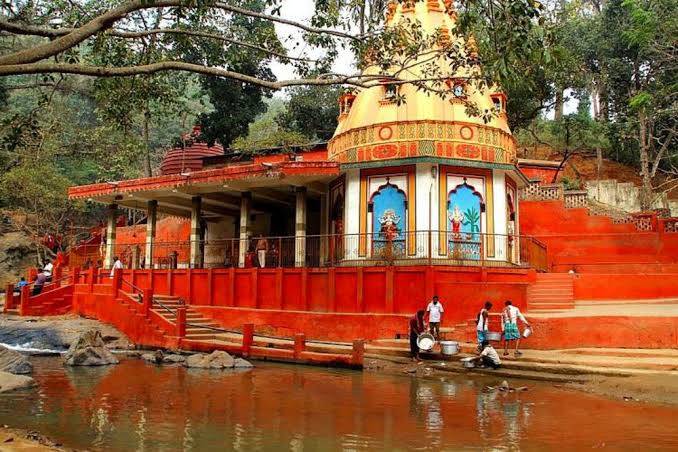Shattering the Sanctity: Apprehension of Teenagers with Drugs at Basistha Temple
The peaceful ambiance of the Basistha Temple in Guwahati, a sacred place revered by countless devotees, was recently shattered by a shocking incident that has sent ripples of shock and disbelief throughout the community. A group of teenage boys were apprehended within the temple premises, caught red-handed in possession of drugs meant for injection. This startling revelation has left the entire community stunned and appalled, raising concerns about the sanctity of the temple space and the safety of its visitors.
Among the group of individuals involved, one young boy has been identified as Jitu Sharma, a resident of Kamakhya. The mere association of a local individual with such an incident has added another layer of concern to the unfolding story. It underscores the fact that this is not a random occurrence but one that involves individuals from within the community itself.
The incident came to light when vigilant visitors of Basistha Temple, who were present to seek solace and devotion, noticed the boys exhibiting suspicious behavior. Upon closer inspection, they discovered that the boys were carrying drugs, particularly drugs intended for injection. The audacity of the situation at Basistha Temple escalated when the boys openly admitted their actions, stating, “These are drugs.” This straightforward confession sent shockwaves through the temple premises, leaving those present astonished and disturbed by the blatant disregard for the sacredness of the space.
However, what followed added a twist to the narrative. Among the boys, Jitu Sharma distanced himself from the drug possession. He claimed that he had, in fact, renounced drug consumption and was merely acting as a carrier for a friend. This unexpected turn of events added complexity to the story, leaving authorities and onlookers puzzled about the dynamics within the group of boys and their intentions.

Regrettably, this incident at Basistha is not an isolated event within the recent history of the Basistha temple. Just days before, the same temple witnessed another troubling episode. A group of young men, self-proclaimed devotees who followed the Bol-Bom tradition, engaged in disorderly and disruptive behavior within the Basistha temple premises. Under the influence of intoxicants, they entered the sacred space after consuming alcohol, ganja, and drugs. Their actions were characterized by a lack of respect for the sanctity of the temple and a disregard for the wellbeing of other worshippers.
The gravity of this incident is underlined by the fact that they even handed drug containers to young children, reflecting a shocking level of recklessness and irresponsibility. Bol Bom is a religious practice deeply rooted in devotion to Lord Shiva, involving the offering of water from the river to the deity. While it holds deep significance for those who engage in it with sincerity, some individuals misuse this practice as a facade for indulgence in intoxication and disorder.
These incidents have raised critical questions about the administration’s vigilance and security measures within the temple premises. Devotees and authorities alike have been left distressed by the blatant violation of the temple’s sanctity and the inappropriate behavior exhibited by some visitors. There is an urgent demand for stringent action against those responsible for such conduct and a renewed emphasis on maintaining the sacredness of the temple space.
The community’s response to these incidents has been marked by a mix of outrage and a renewed commitment to preserving the temple’s sanctity. Calls for enhanced security arrangements and a collective effort to uphold the temple’s traditions have grown louder. The incidents have also prompted discussions on responsible behavior within sacred spaces and the importance of respecting religious sentiments.
As this shocking incident continues to reverberate through the community, it serves as a stark reminder of the need to safeguard the sanctity of sacred spaces and to ensure that they remain places of reverence and solace for all devotees. It also underscores the importance of responsible behavior and the role of the community in upholding the values and traditions associated with such revered places.











